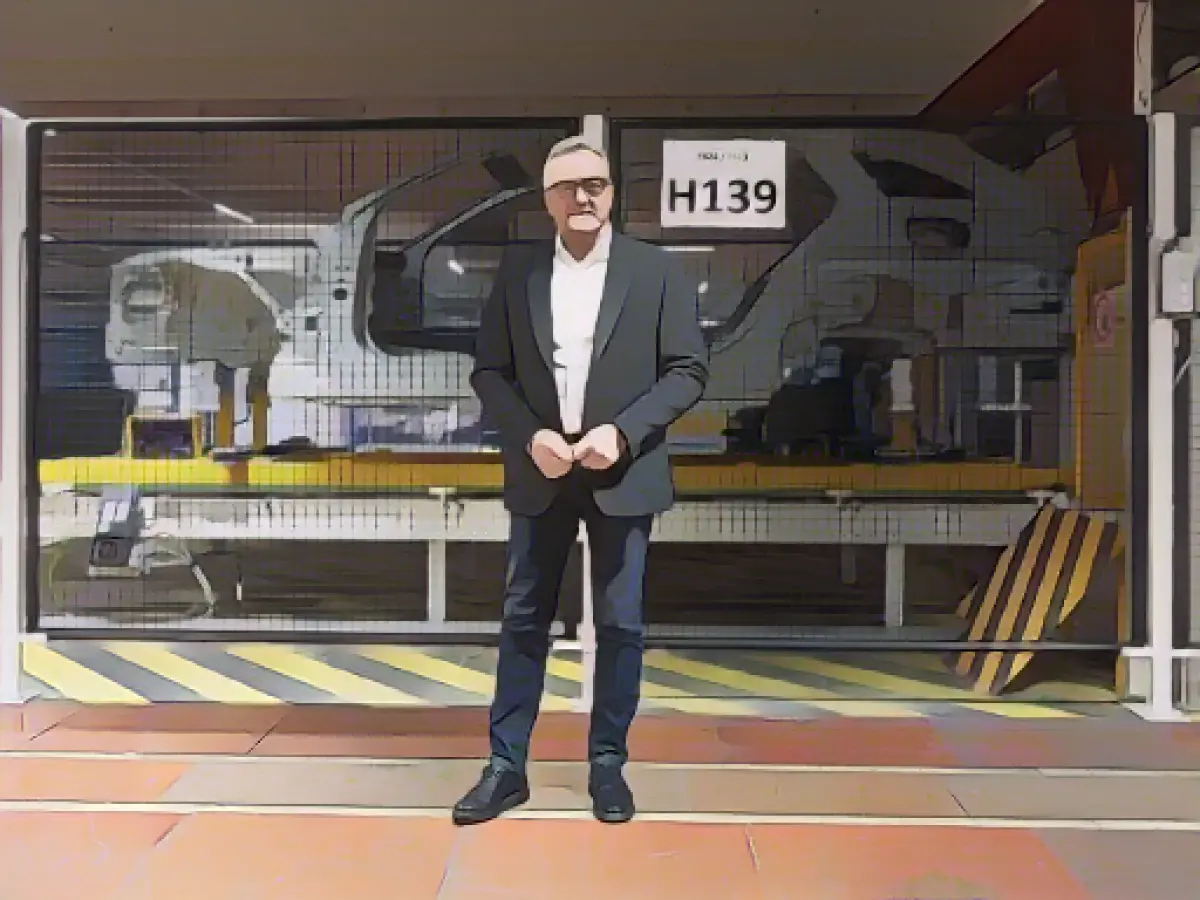Mercedes-Benz's Top Representative Pushes for Job Security into 2035
In a bold move, the head of the General Works Council at Mercedes-Benz, Ergun Lümali, is advocating for an extension of job security until 2035. Lümali shared his thoughts with the German Press Agency, highlighting the challenging environmental landscape and the need for employee security in uncertain times.
The anticipated ramp-up of e-mobility and transformation, which is expected to pick up pace after 2028 and 2029, has prompted this demand. Lümali stressed that rather than just extending the agreement, a well-thought-out strategy should be adopted to ensure the survival of the German production network.
The "Zusi 2030" initiative, a company agreement in force internally at Mercedes, applies to the majority of the 115,000 employees in Germany. This agreement generally prevents compulsory redundancies until the end of 2029.
Mercedes was measured in its response to the proposal. The company acknowledged its commitment to providing secure employment, even during massive industry transformations. However, they expressed no immediate need to extend the agreement, given the extensive timeline of more than six years.
Introducing a Futuristic Plan to Secure Employment
The General Works Council at Mercedes-Benz is planning to leverage their sites for the production of e-mobility technologies to secure employment beyond 2029. Despite the proposed job security extension up to 2035, the company spokesperson maintains that the long-term nature of the plan does not necessitate an immediate agreement extension.
As the automotive industry adapts to AI, the job roles are evolving. Mercedes-Benz is integrating AI to optimize operations and boost productivity, potentially affecting certain roles. However, this shift encourages a transition towards more creative and strategic tasks, allowing skilled developers to tackle innovative challenges.
The integration of AI in the automotive sector offers both opportunities and challenges. While it promises enhanced driver safety and comfort, it raises concerns about safety and the potential for automakers to overemphasize the benefits of autonomous technology while downplaying the risks.
Public reactions to AI technology in vehicles are mixed, with some expressing concerns about practicality and safety. The European Union's implementation of new testing standards for autonomous vehicles aims to address such concerns, ensuring safety and public trust.
As the industry moves towards more autonomous solutions, regulation plays a crucial role. The regulatory challenges faced by the automotive sector require careful consideration and regulation to ensure the safety and public trust required for the widespread adoption of autonomous vehicles.
Enrichment Data:
The provided sources discuss the broader impact of AI on job roles within the automotive industry but do not specifically address the Head of Works Council's call for job security until 2035 at Mercedes-Benz. These sources, however, offer valuable insights into the impact of AI on job roles and the regulatory challenges faced by the automotive sector as it transitions to more autonomous solutions.
- Mercedes-Benz is using AI to streamline operations and boost productivity, potentially affecting certain roles but encouraging a shift towards creative and strategic tasks.
- The EU is implementing new testing standards for autonomous vehicles, aimed at ensuring safety and public trust.
- Public reactions to AI technology in vehicles are mixed, with some expressing concerns about practicality and safety.
- Regulation plays a crucial role in ensuring the safe and public trust-worthy integration of autonomous technology in the automotive sector.






